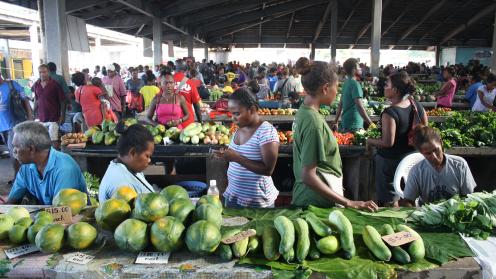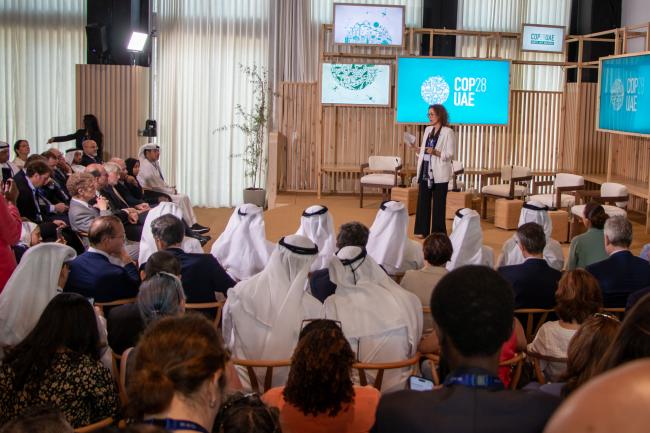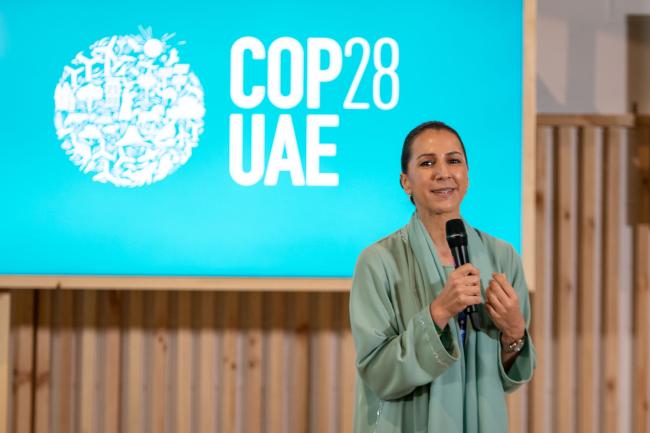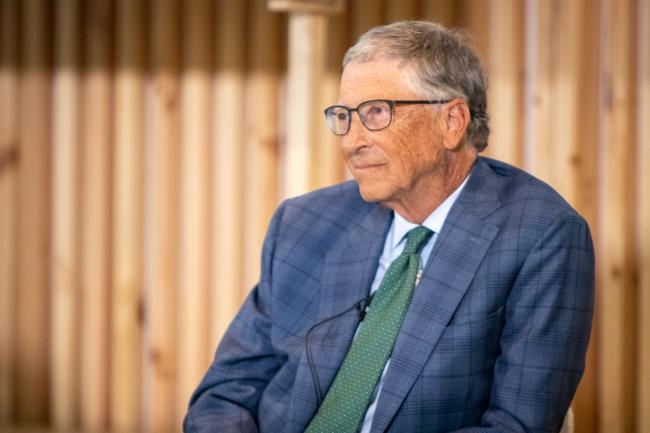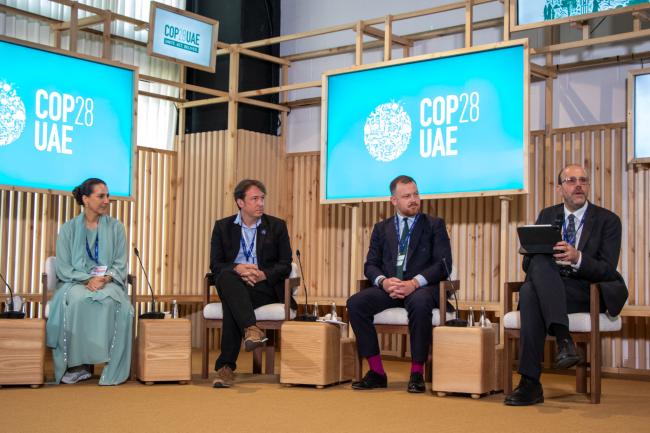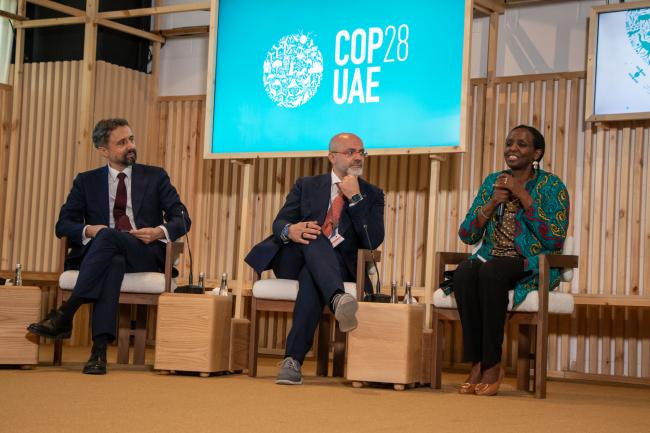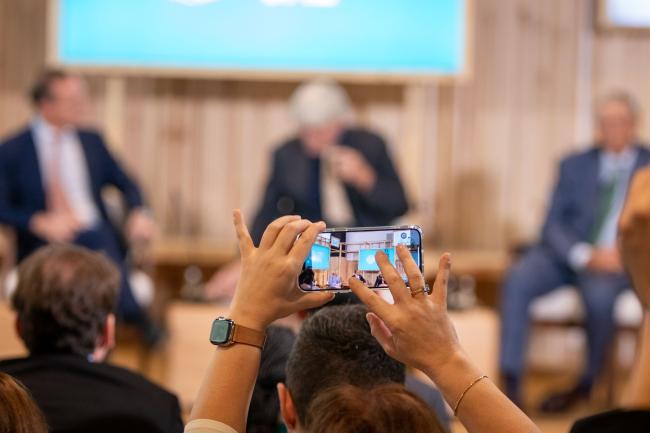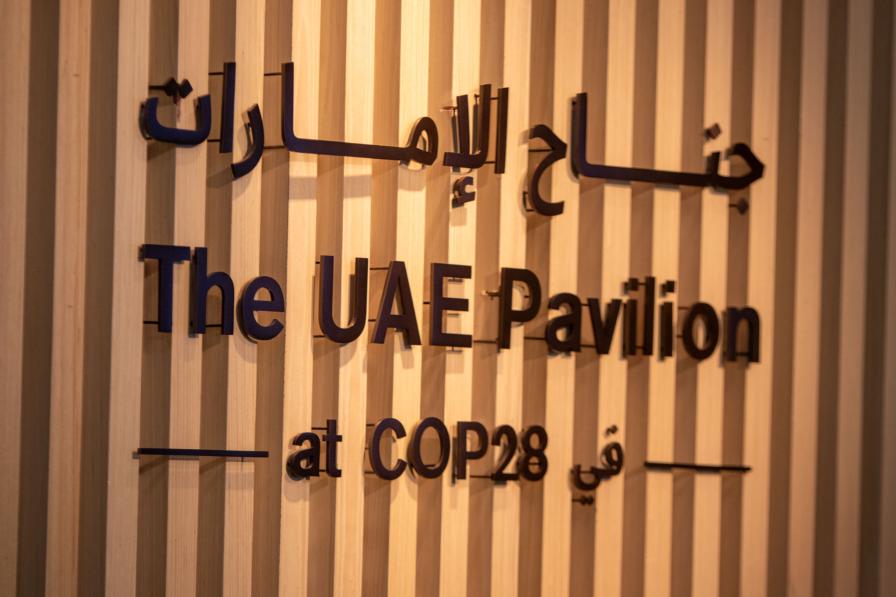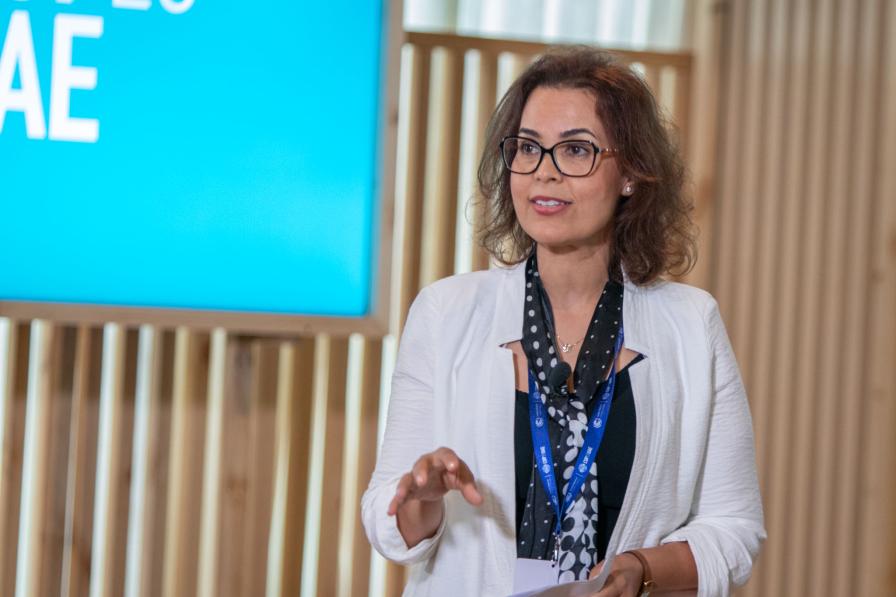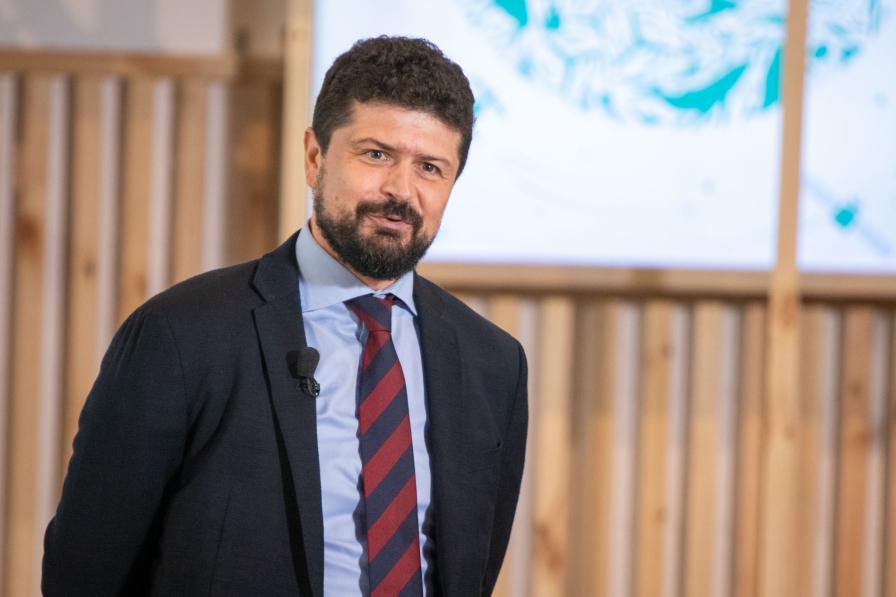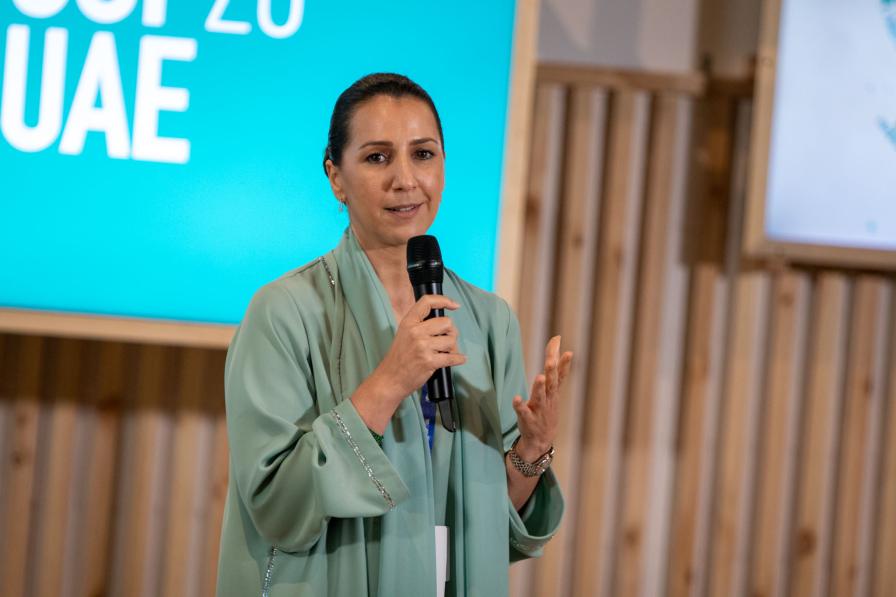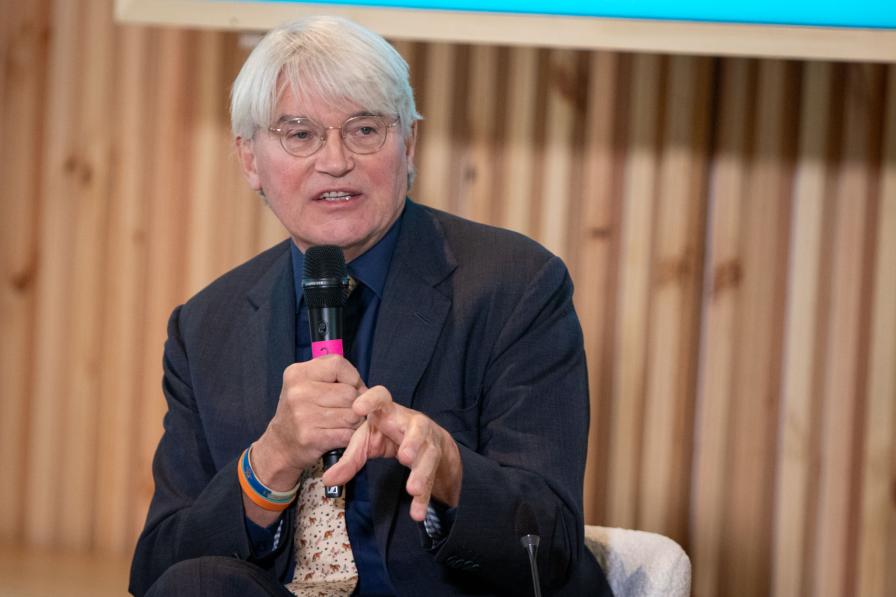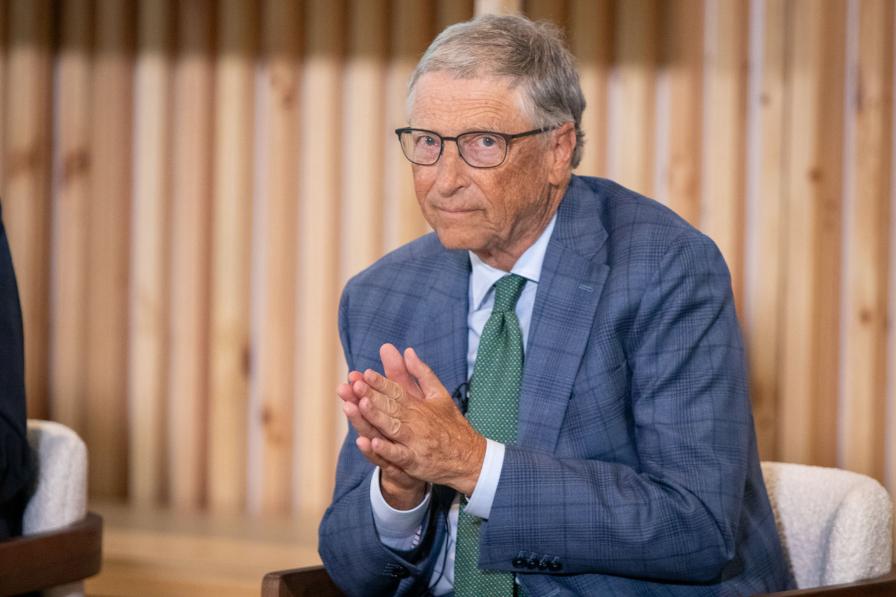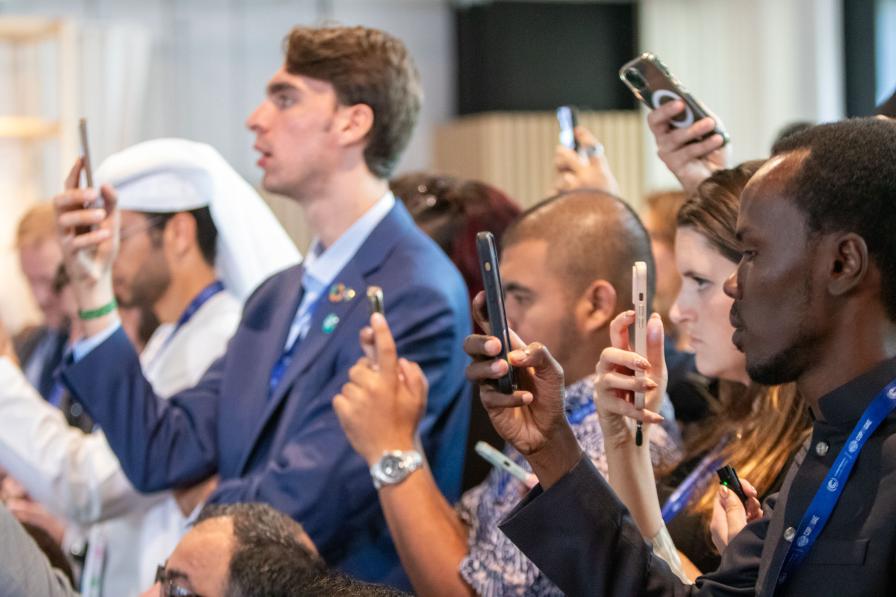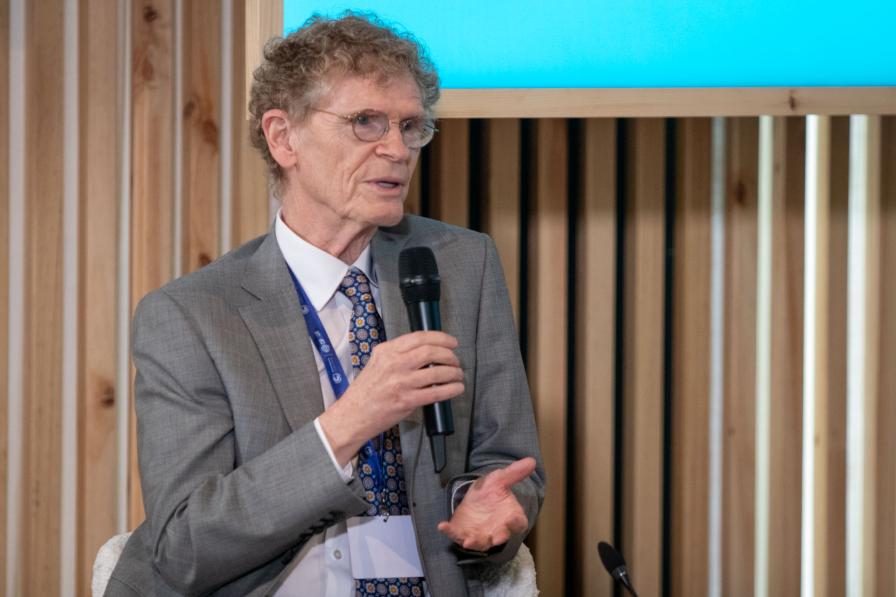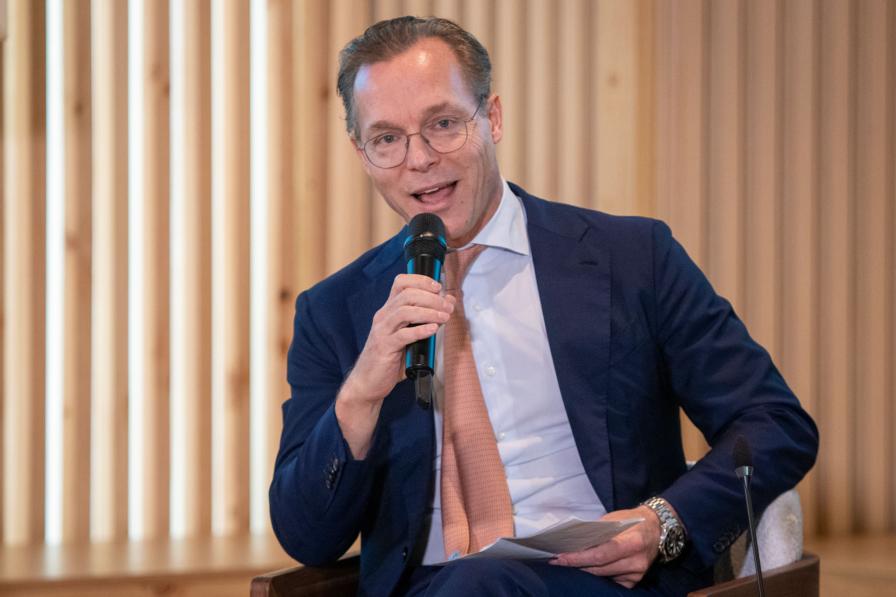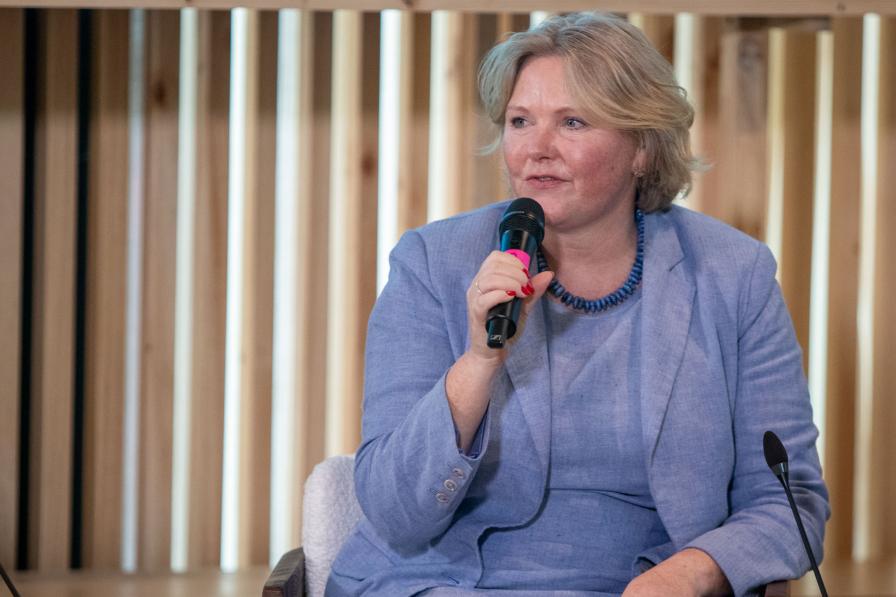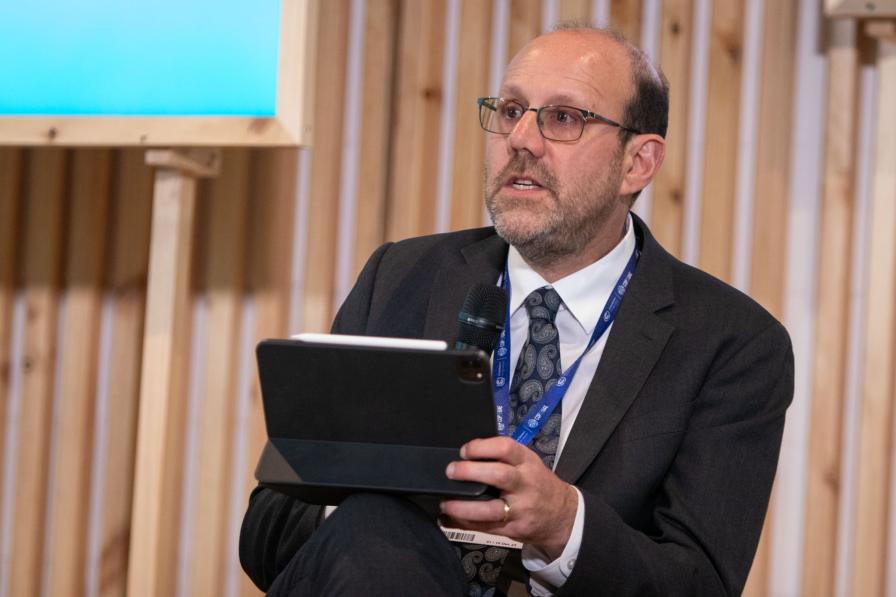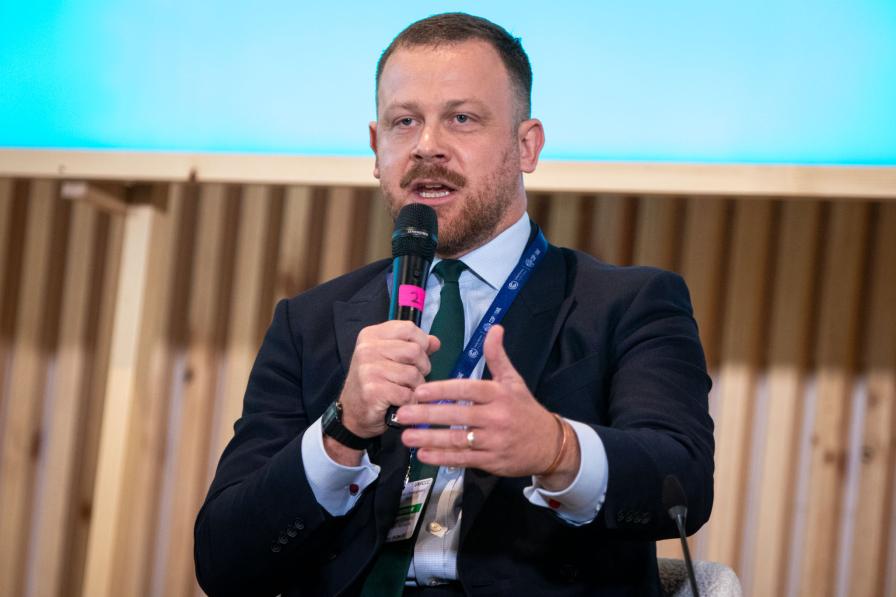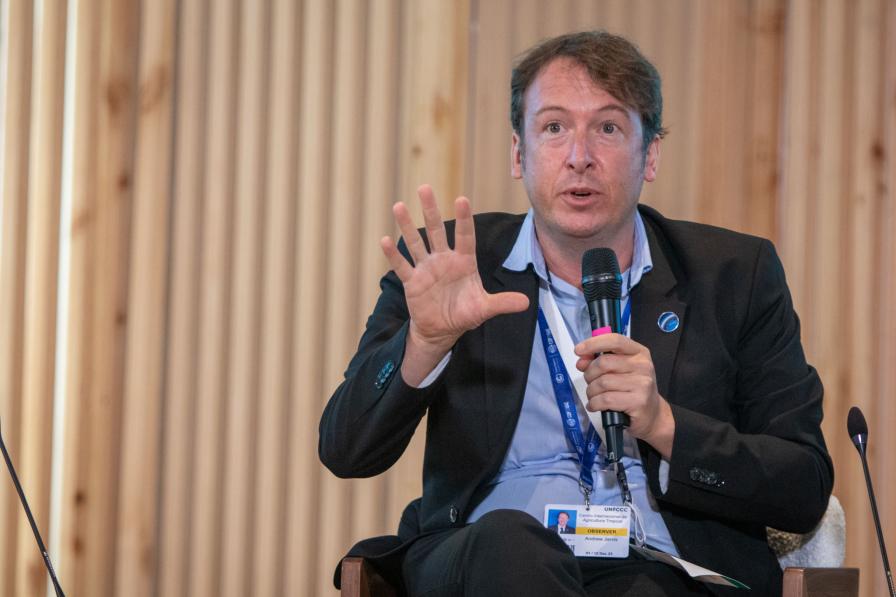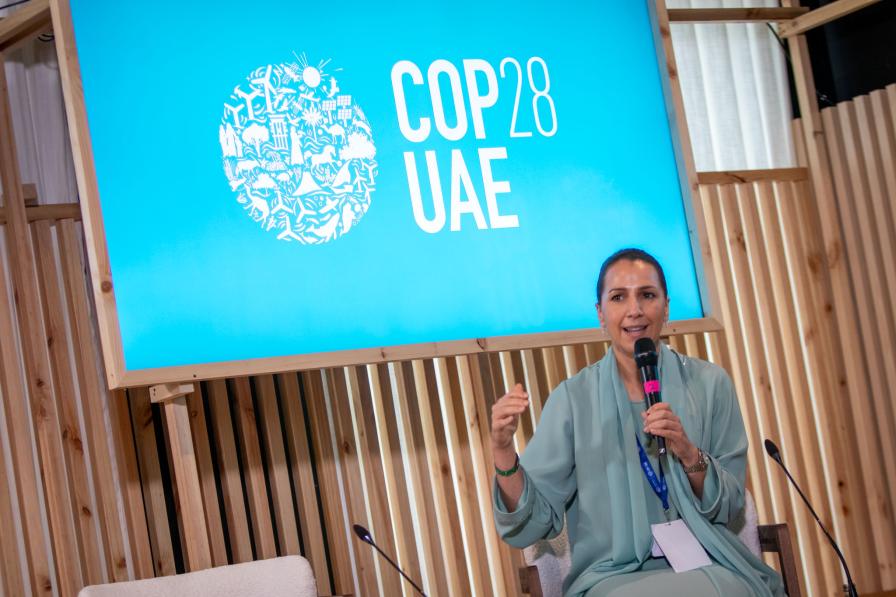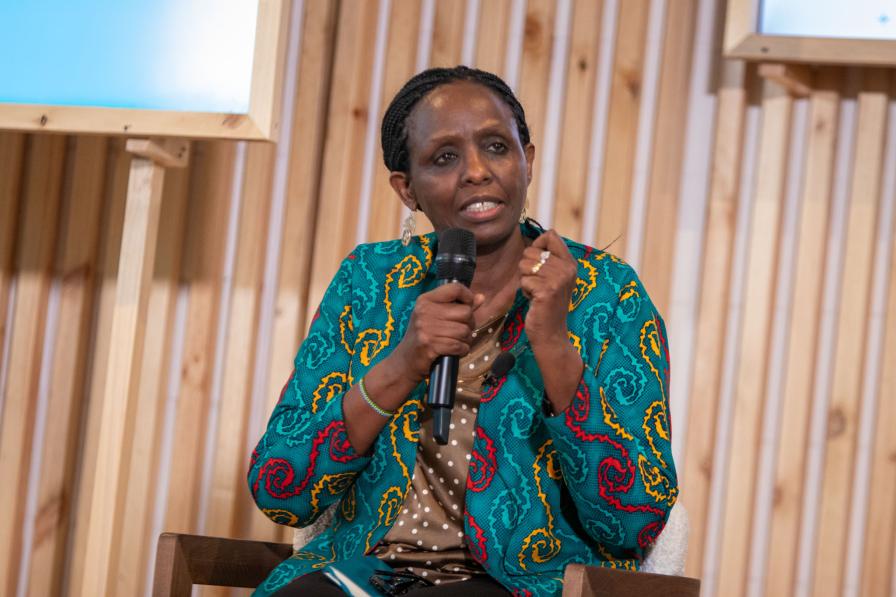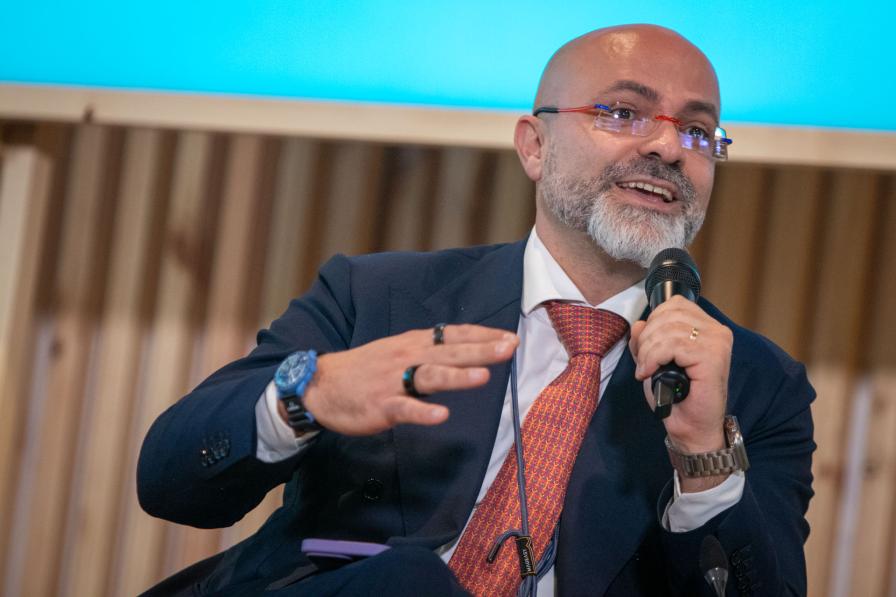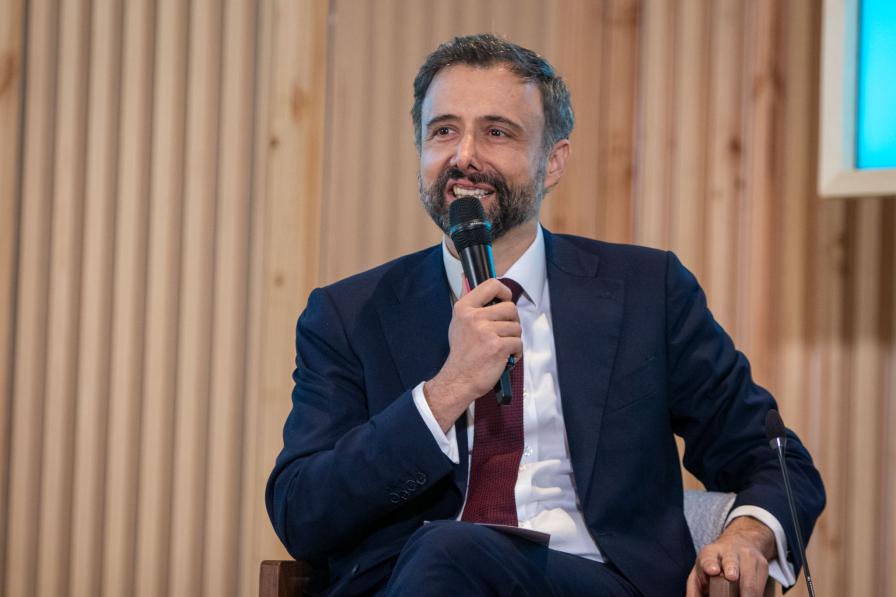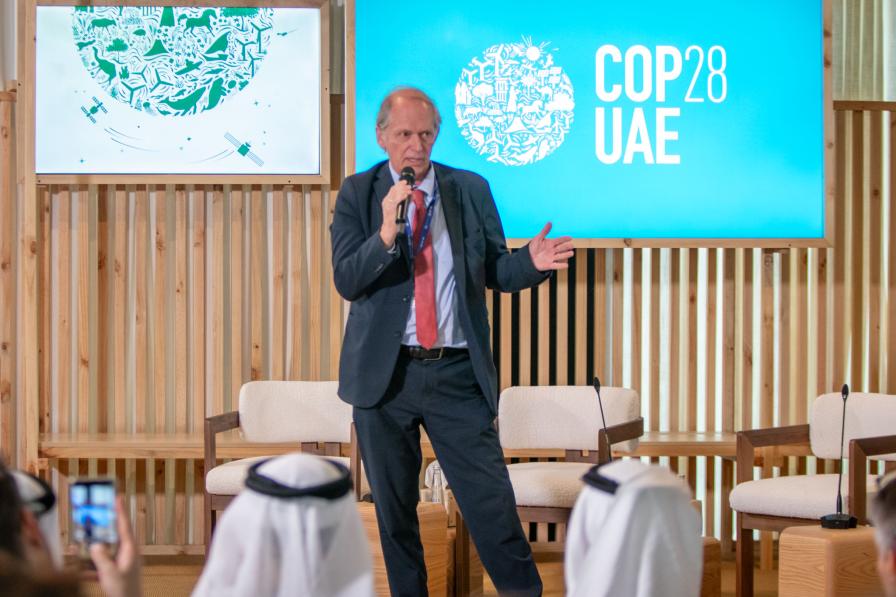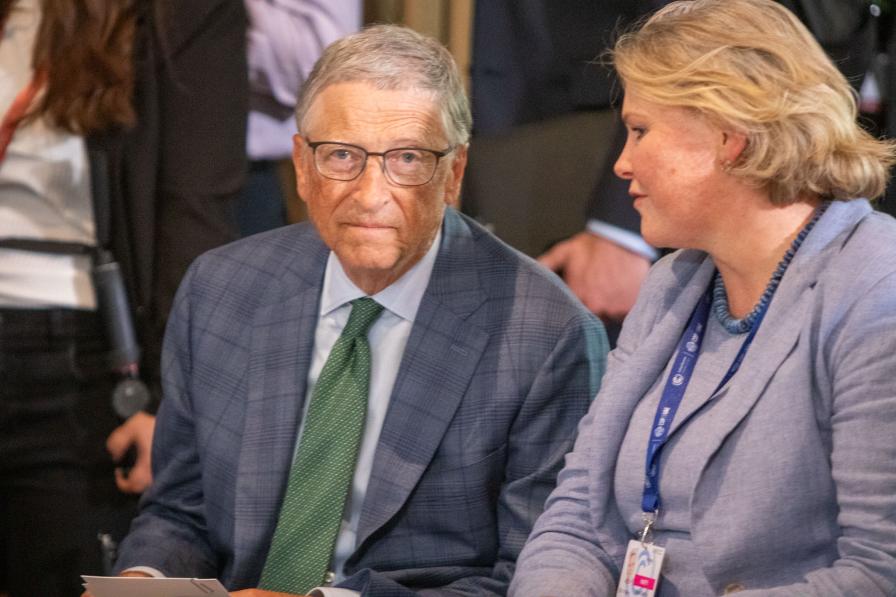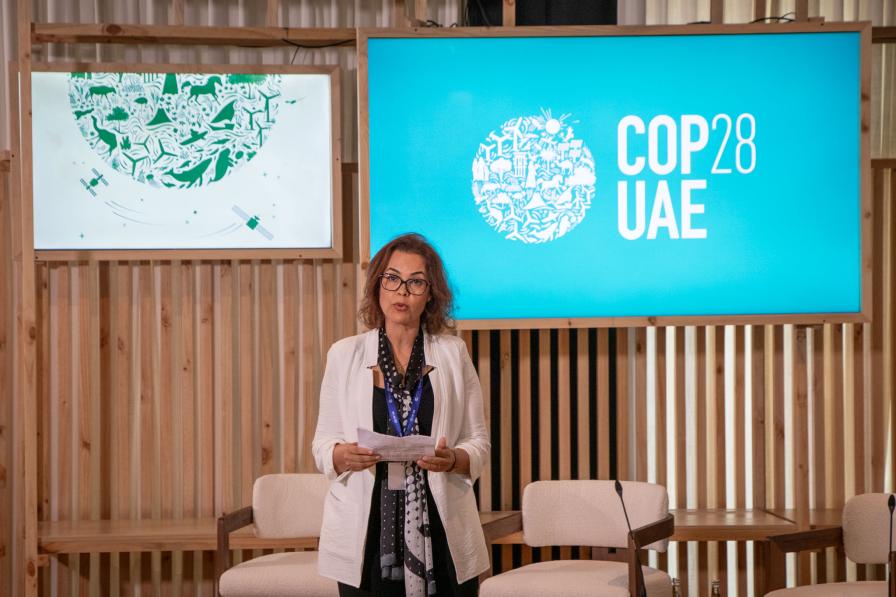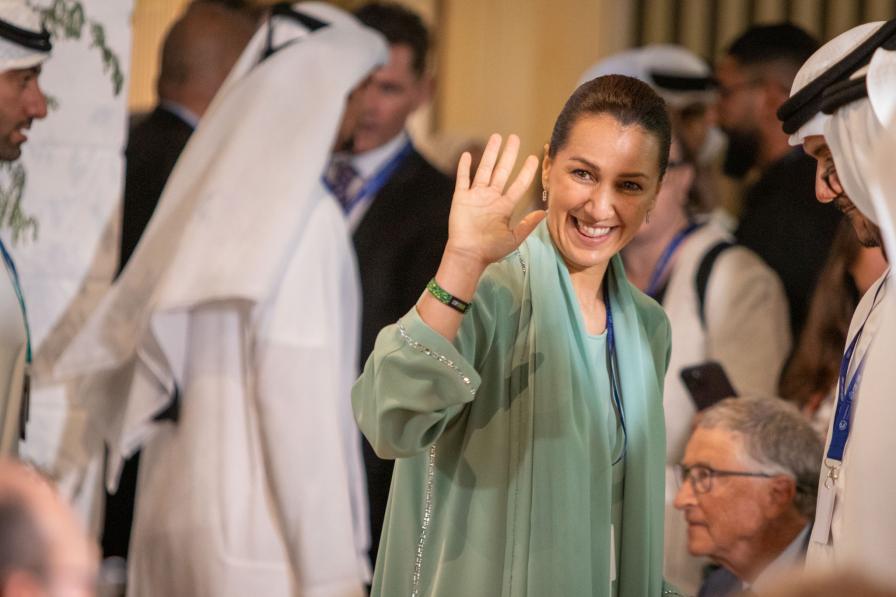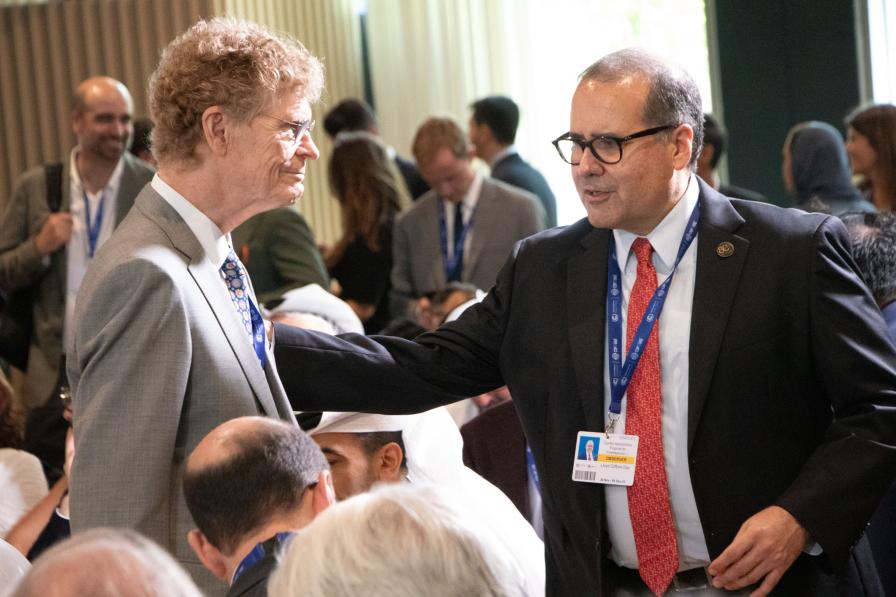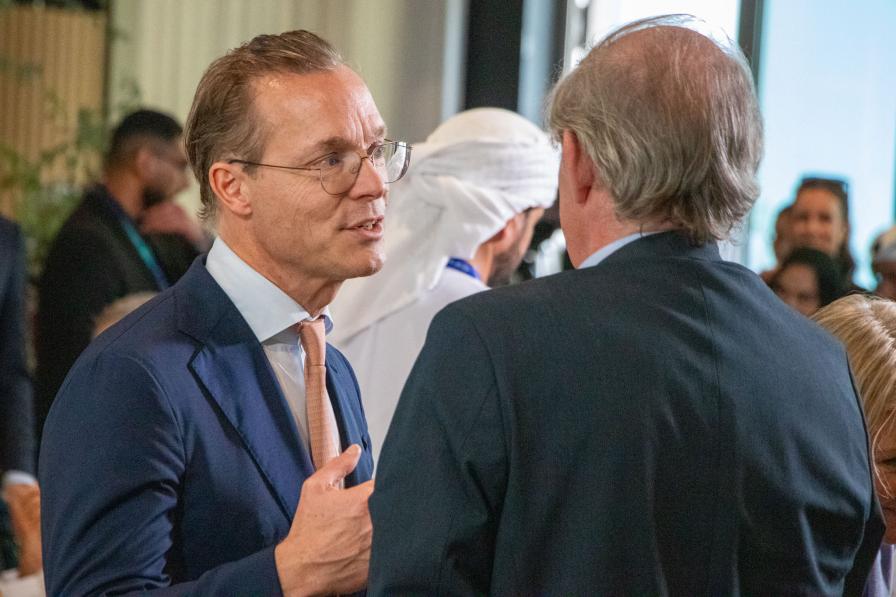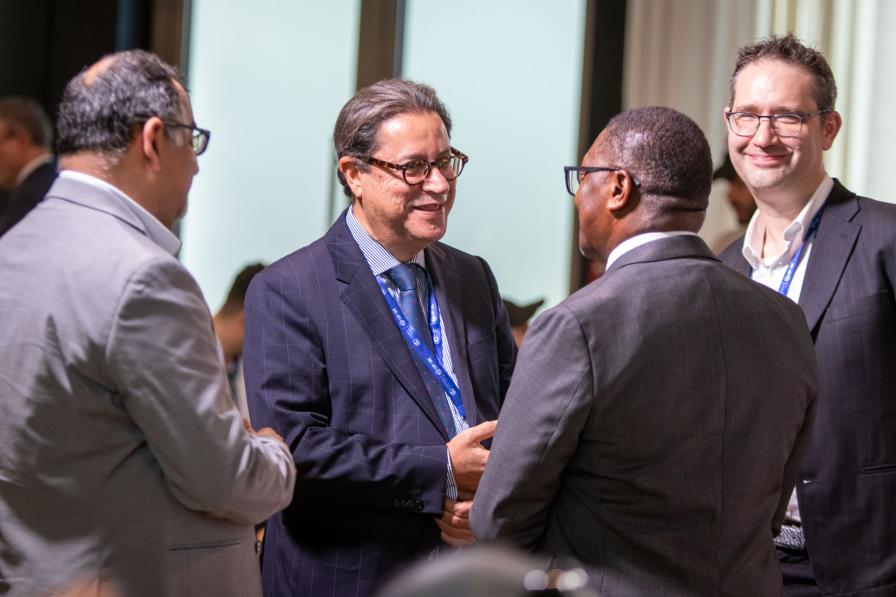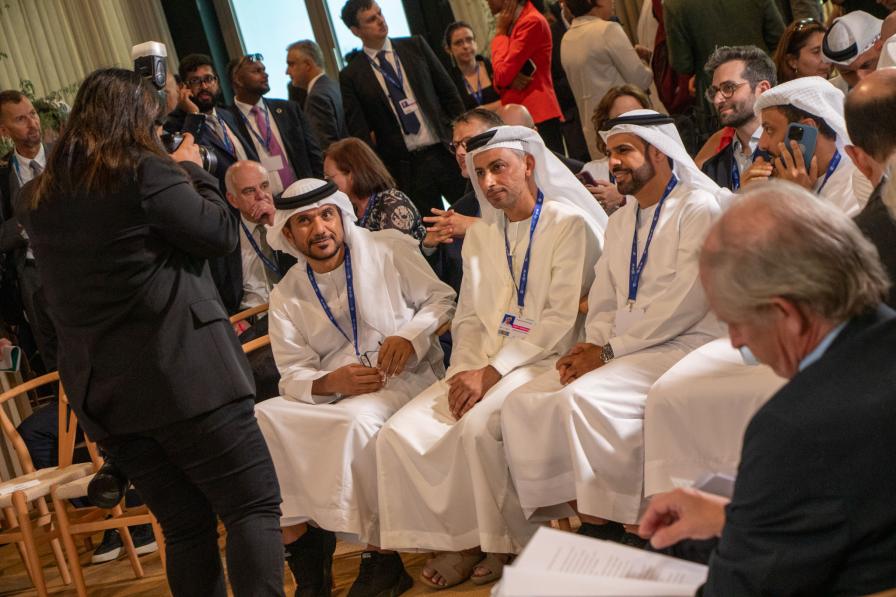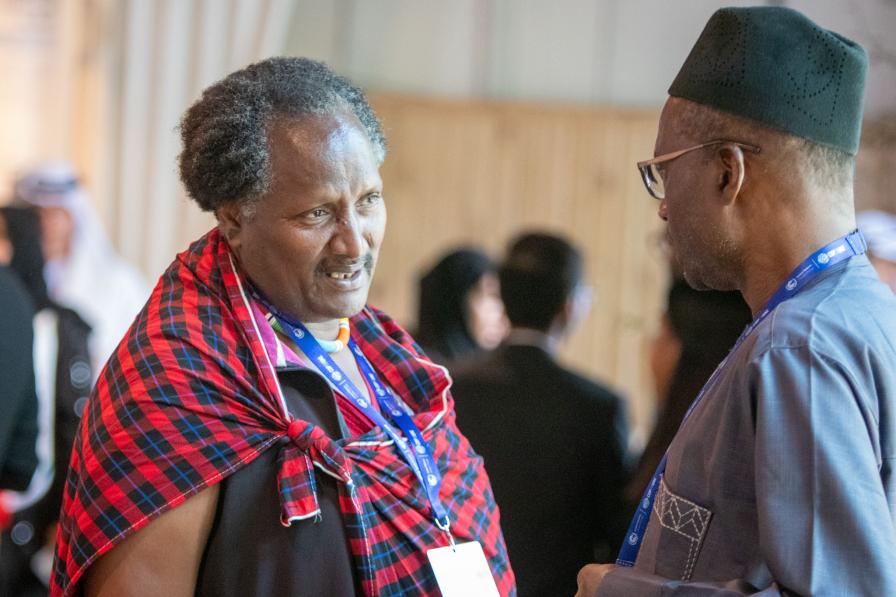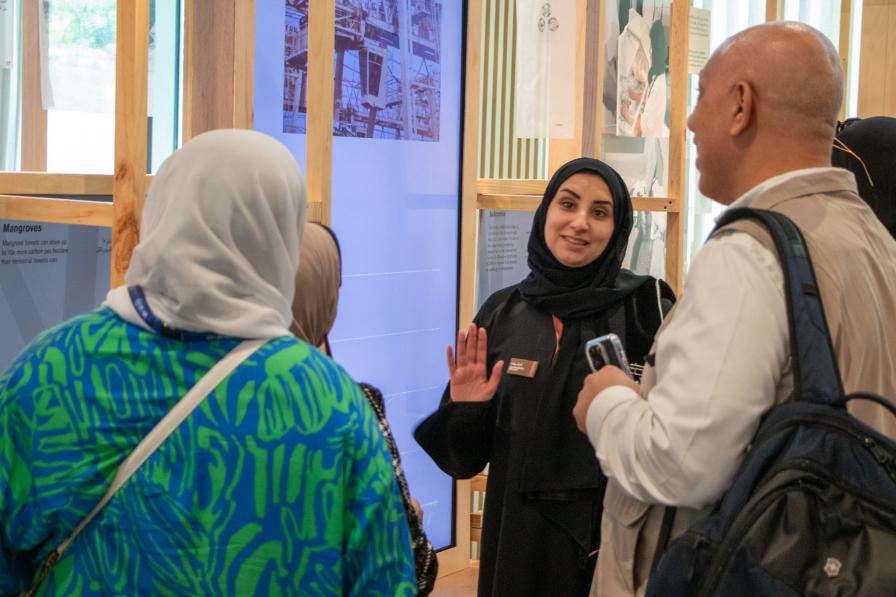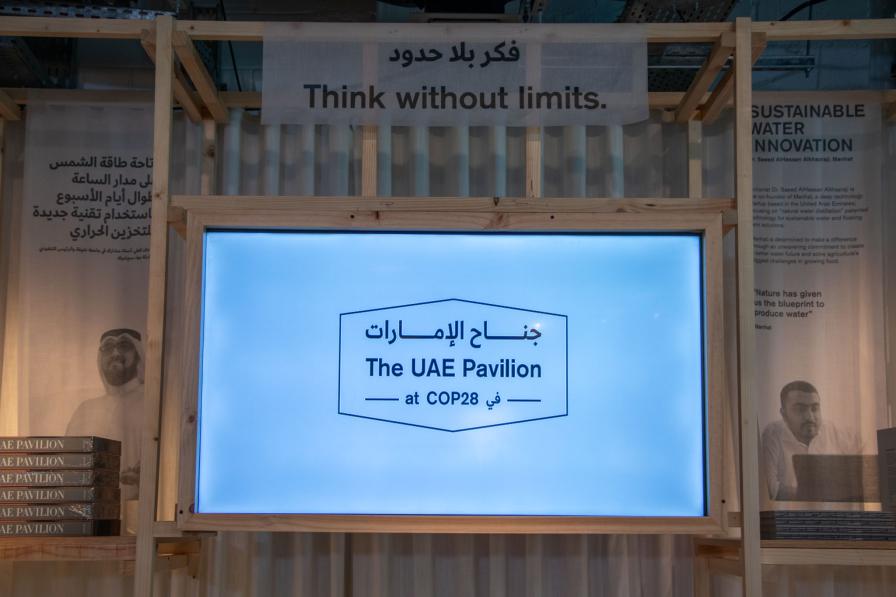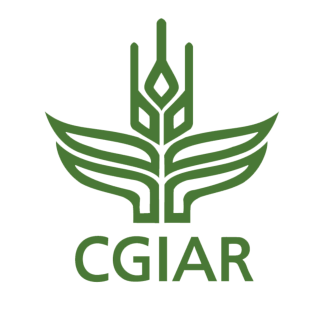Summary
To celebrate the launch of a USD 200 million partnership or Food Systems, Agriculture Innovation and Climate Action, this co-hosted event convened three panels with CGIAR alongside other funders and champions central to amplifying efforts to transform food and agricultural systems.
Recognizing the Power of Partnership Platforms to Deliver COP28’s Food Systems and Agriculture Agenda
Food and agricultural systems are are central to the COP’s agenda in Dubai, and significant progress was made in the first days of the Conference. On 1 December, at the World Climate Action Summit held during COP 28, the United Arab Emirates (UAE) Ministry of Climate Change and Environment and the Bill and Melinda Gates Foundation launched a USD 200 million partnership for Food Systems, Agriculture Innovation and Climate Action. The partnership focuses on agricultural research, scaling agricultural innovations, and funding technical assistance for implementing the Emirates Declaration on Sustainable Agriculture, Resilient Food Systems and Climate Action, which was endorsed the same day.
This event sought to celebrate this partnership by convening three panels with funders and champions of platforms central to efforts to implement the Declaration and the broader COP 28 food systems and agriculture agenda. The event was moderated by Kristofer Hamel, Head, Food Systems, COP 28 Presidency.
Mariam Almheiri, Minister of Climate Change and Environment, UAE, and COP 28’s Food Systems Lead, heralded this “milestone moment” of 134 countries coming together to support the Declaration, and the partnership with the Bill and Melinda Gates Foundation as “the catalyst we need,” but underscored the work to scale up research and innovation that remains to be done.
Ismahane Elouafi, Executive Managing Director, Consultative Group on International Agricultural Research (CGIAR), offered keynote remarks that underscored the threat climate change poses to our agrifood systems. She said that “food can and must be central” to the solution to climate change. She spoke about the technological solutions that CGIAR has developed, which can provide small scale farmers with the tools, data, and technology needed to support their crops and livelihoods. She noted the organization’s goal of putting forward USD 4 billion over three years to support these efforts and thanked donors for their pledges of USD 900 million to date.
In a first panel focused on support for the work done by CGIAR, Andrew John Bower Mitchell, Minister of State for Development and Africa, United Kingdom, spoke about his country’s commitments to supporting food systems in developing countries, citing the UK Food Security Summit held in November 2023 and the White Paper on International Development, launched by the Prime Minister Rishi Sunak, that focuses on getting the Sustainable Development Goals (SDGs) back on track.
Cary Fowler, US Special Envoy for Global Food Security, spoke of the need for increasingly “bold and aspirational” action to transform food and agricultural systems, noting CGIAR’s vision as a chief vehicle for innovation. He acknowledged that the US met its commitment of USD 250 million to CGIAR and announced an additional USD 100 million over the next two years.
Jaime de Bourbon de Parme, Climate Envoy of the Netherlands, noted the role his country plays as a hub for food and trade, as well as the importance of adapting food systems for his country’s economy. He announced the Netherlands would pledge USD 110 million to CGIAR, in addition to the USD 150 million it pledged to the International Fund for Agricultural Development (IFAD).
Bill Gates, Co-Chair of the Bill and Melinda Gates Foundation, acknowledged the “groundbreaking, innovative” work being undertaken by CGIAR scientists. He drew parallels between the lifesaving efforts of vaccines and CGIAR to support food system transformation, and highlighted the economic, nutritional, and gendered impacts of efforts to enhance livestock in Africa.
Anne Beathe Tvinnereim, Minister of International Development, Norway, said the world is facing a “vicious dilemma” as it seeks to produce more food for a growing population while doing so sustainably. She spoke of the need for a new “Green Revolution” to transform our food and agricultural systems, while acknowledging the politically complex nature of the issue.
During the second panel on the Agricultural Innovation Mechanism for Scale (AIM4Scale) Initiative, Michael Kremer, University of Chicago and Nobel laureate, spoke of the work he has been doing with Almheiri’s team to identify seven priority areas to develop innovations that will be cost effective and impactful for small scale farmers. He provided examples, such as the development of customized digital agricultural extension services, with can deliver accurate forecasting data to farmer’s phones.
George Richards, Community Jameel, discussed the work his organization is doing in partnership with the UAE to develop early warning systems that are now being supported by the AIM4Scale Initiative, noting the system leverages data to model climate change impacts 30 years in advance. He underscored the need to harness satellite and system data, as well as traditional knowledge, to develop long-lasting, concrete solutions.
Andy Jarvis, Bezos Earth Fund, acknowledged that “we have a food system that is doing very few favors for people and the climate” and that multiple innovative solutions are needed to re-envision the food system. He highlighted the importance of developing sustainable meat and alternative proteins that are at cost, taste, and nutritional parity with what consumers are familiar with.
Almheiri closed the panel by reflecting on how we can turn challenges into opportunities by embracing innovation.
On the final panel on the the launch of the Food Systems Technical Cooperation Collaborative, which aims to provide technical cooperation and help deliver on the objectives of the Declaration, Agnes Kalibata, President, Alliance for a Green Revolution in Africa, said no two countries have the same food systems because of differing political environments. She reiterated the commitment of the Technical Cooperation Collaborative to supporting countries in unlocking existing technologies that can transform agrifood systems and therefore economies and communities, while taking local contexts into consideration.
Francesco Corvaro, Italy's Special Envoy for Climate Change, spoke of his country’s commitment to work in collaboration with the UAE to put food security on the agenda during its G7 Presidency in 2024, with the goal to bring attention to the urgent need of food system adaptation.
Alvaro Lario, President, IFAD, noted the need for local action within countries to work with “the first mile” of small-scale farmers producing food to support national pathways to agricultural innovation and climate adaptation.
“This is a historic day,” Juergen Voegele, Vice President for Sustainable Development, World Bank, said in concluding remarks. He commented the UAE leadership for their role in developing the partnerships and said it will take more leadership to turn discussion into action on the ground. He drew attention to the need to transform policy approaches toward developing climate smart outcomes and away from agricultural subsidies that are often climate negative. He noted that the World Bank has contributed USD 1.5 billion in grant money to CGIAR and that the Bank will contribute another USD 100 million over the next two years to accelerate the speed and scale of CGIAR’s innovations.
Organizer: CGIAR
Contact: Nathan Birac | N.Birac@cgiar.org
For more information: cgiar.org
To receive free coverage of global environmental events delivered to your inbox, subscribe to the ENB Update newsletter.
All ENB photos are free to use with attribution. For this COP 28 side event, please use: Photo by IISD/ENB | Matthew TenBruggencate.
Select Images
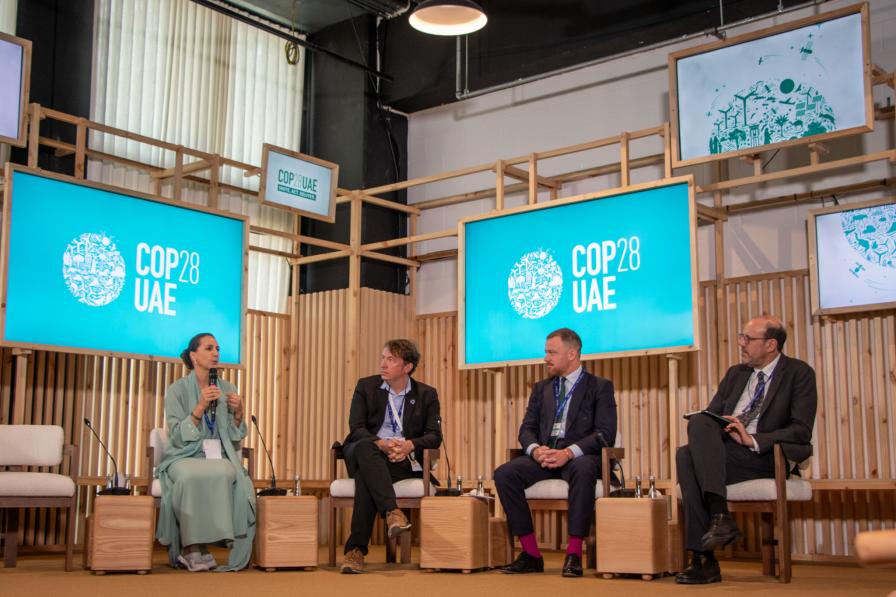
L-R: Mariam Almheiri, Minister of Climate Change and Environment, United Arab Emirates; Andy Jarvis, Bezos Earth Fund; George Richards, Community Jameel; and Michael Kremer, University of Chicago and Nobel laureate
